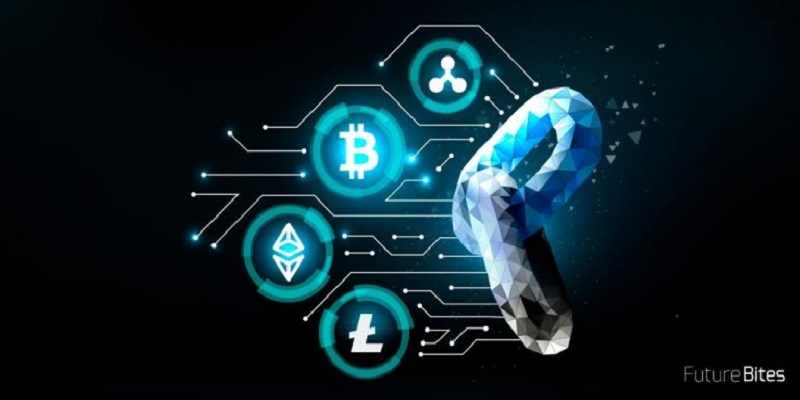
In recent years, the gaming business has undergone a significant transformation both in terms of participation and revenue. The pandemic substantially impacted most industries, but the gaming industry had the inverse result. Individuals needed something to relax and pass the time when everything was shut down. As a result, the COVID-19 outbreak has significantly contributed to the increase in gamers. According to Statista, the number of online gamers in India is poised to reach 450 million by 2023.  Traditional gaming only offers a small amount of player engagement compared to modern gaming. However, due to technological breakthroughs that heralded a new age in the gaming market, a plethora of unique gaming genres have developed, ranging from crypto, blockchain, and NFT-based gaming, steadily revolutionizing the industry.
Traditional gaming only offers a small amount of player engagement compared to modern gaming. However, due to technological breakthroughs that heralded a new age in the gaming market, a plethora of unique gaming genres have developed, ranging from crypto, blockchain, and NFT-based gaming, steadily revolutionizing the industry.
The Role of Crypto, Blockchain, and NFT in the Gaming Industry
Despite their infancy, blockchain, crypto, and NFT gaming are appealing to players as they offer a variety of new prospects that traditional gaming does not. Revolutionary new concepts like play-to-earn gaming and giving users more control have made it appealing to both crypto aficionados and gamers. As technology advances, the quality of services will reach new heights. Hence, the potential for crypto, blockchain, and NFT-based gaming is enormous and offers many benefits.
Benefits of Technology-based Games
Control over assets
Blockchain gaming gives players greater power since they keep ownership of their assets. This implies that, unlike in traditional gaming, where creators retain complete control and may remove or edit objects at their discretion, the assets purchased or gained through the game cannot be withdrawn or taken away by anyone else. Furthermore, if someone possesses an NFT asset, it might be considered an outstanding investment opportunity. When playing NFT games, gamers either sell their assets for extra money, bring them over to another game, or swap them with other players to maintain or even increase their value as long as there is demand.
As a result, when the conditions, such as completing a task in the game or purchasing the item satisfy the user, the player immediately gains ownership of the digital asset. Essentially, this gives players a high sense of control and decision-making authority. The capacity to manufacture in-game goods, analogous to NFTs, allows players to control and manage the items they construct, acquire, or purchase.
Play to earn games
One of the game-changing elements offered by the advent of blockchain, crypto, and NFT gaming is play-to-earn gaming. Play-to-earn gaming is a novel paradigm that allows players to earn tokens for fulfilling particular objectives, such as passing a level and jolting up the usual ‘play-to-win’ framework. Tokens acquired in the game have real-world worth and may be used to pay for various goods, including NFTs, swapped for other cryptocurrencies such as Bitcoin, and so on, or even purchase real-world assets.
The notion of monetizing in-game actions to drive real-world transactions is an exciting and innovative step that opens up a plethora of possibilities. This revolution is known as “GameFi.” GameFi incorporates the concept that players could invest their money and earn assets that may be maintained, valued, and traded on online marketplaces instead of wasting money on in-game content. Therefore, a digital economy that compensates players for playing has emerged, making gaming a potentially profitable source of revenue.
Creation of decentralised economies
The integration of NFTs into gaming has generated an entirely new digital economy that benefits players, rewards them for their participation, and provides financial services that make gaming a massively lucrative method to make money. Blockchain gaming has brought game economies to a larger scale, making them more resilient and easier to design and develop. Blockchains, in concept, allow transactions to be performed swiftly and effectively, but chains have inherent restrictions that must be addressed.
Crypto and NFT may also be exchanged smoothly across numerous platforms when connected to a blockchain. People may earn money just by playing the game and purchasing and trading inside it, which has several advantages. It extends further than this, though, and has spawned new digital economies along the way.
Final Takeaway: The Gaming Industry is Undergoing a Revolution
In a nutshell, it would not be incorrect to conclude that the advancement of technology has opened up new options for the gaming sector. Thanks to tremendous technological advances, the sectors are growing more competitive on a daily basis. As a result, elements such as blockchain, cryptocurrency, and NFT-based gaming will undoubtedly become the next step ahead. Moreover, the future of gaming appears to be bright. Indeed, it is evident that the adoption of crypto, blockchain, and NFT-based gaming has the potential to revolutionise the gaming industry and is set to take the sector by storm in the next few years.
(This article has been contributed by House of Gaming CEO and founder Yash Pariani and AnimationXpress does not necessarily subscribe to these views)

